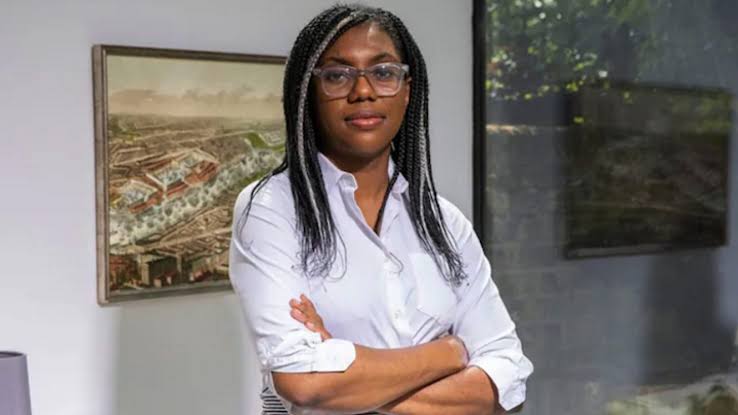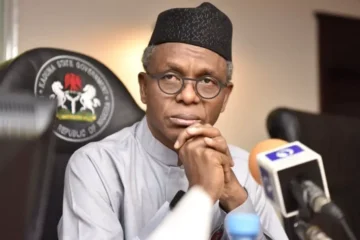
A British woman politician of Nigeria extraction, Kemi Badenoch, has declared her intention to succeed Boris Johnson as the next British Prime Minister and Conservative party leader.
Badenoch is a former United Kingdom equalities minister who was born on January 2,1980 in London.
Recall that Boris Johnson resigned as UK prime minister on July 7, following numerous calls for his resignation over loss of confidence in his style of governance.
Several ministers also resigned their positions.
Johnson had, however, said he intends to stay on as prime minister until a successor is chosen.
Confirming her candidacy in an article in the Times, Badenoch said she wanted a “limited government focused on the essentials”.
The 42-year-old, who was among ministers that resigned, said she would lower taxes, but also have a “tight spending discipline”.
“Without change the Conservative Party, Britain and the western world will continue to drift. Aggressive and assertive rivals will outpace us economically and outmanoeuvre us internationally.
“It won’t be enough just to offer better management of relative decline. We need the discipline to transform government into an effective and streamlined machine for delivery, not a piggy bank for pressure groups,” she wrote.
According to Badenoch, she is contesting because she wants “to tell the truth.”
“It’s the truth that will set us free,” she added.
She also said, “people are exhausted by platitudes and empty rhetoric”, adding that an “intellectual grasp of what is required to run the country” is missing.
Badenoch was born in Wimbledon, London, to parents of Nigerian origin.
She studied computer systems engineering at the University of Sussex and worked as a software engineer at Logica. She also worked at the Royal Bank of Scotland Group as a systems analyst.
In 2012, Badenoch contested but lost a seat on the London assembly. Three years later, she was selected as a London assembly member.
From February 2020 to September 2021, she was appointed exchequer secretary to the treasury, and was parliamentary under-secretary of state at the department of education between July 2019 and February 2020.
In February 2020, she was appointed minister of state for equalities — a position she held until July 6, 2022.











